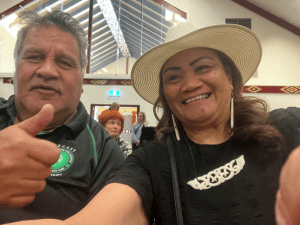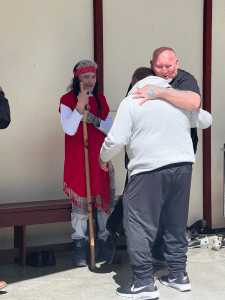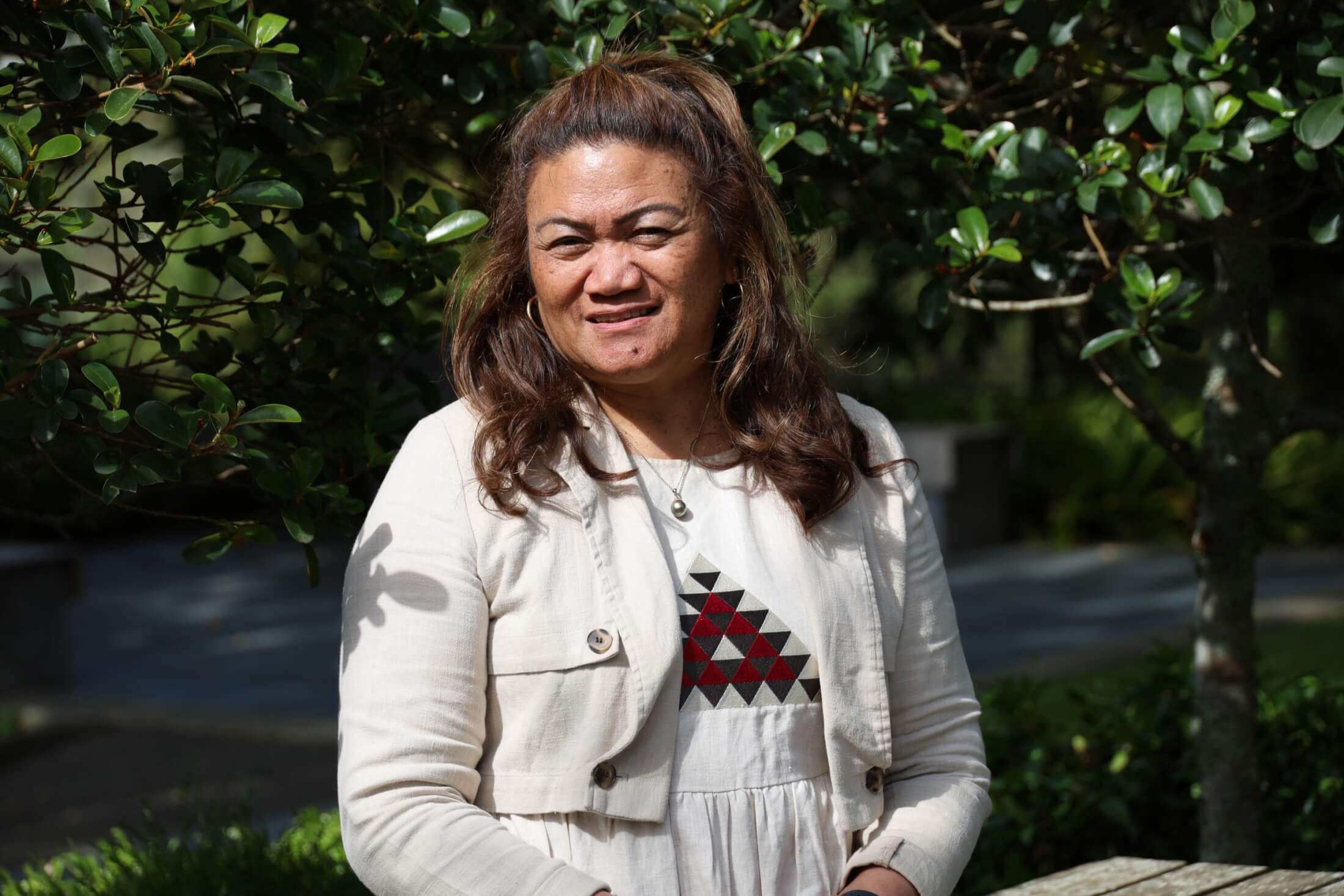Hera Clarke, the Commissary for Reconciliation and Restoration, has focused on walking alongside survivors of abuse in care across church institutions and services for the past three years in one of the Church’s most challenging spaces. Her work also involves collaborating with Te Korowai, an Anglican Church governance entity, to respond to the Royal Inquiry into Abuse in Care within State and Faith-based institutions, addressing the report and its recommendations.
Hera’s talents were cultivated by decades of leadership in social work, counselling, and community-building—experience she began in 1992 when she first stepped into her work with the Church. Guided by her upbringing in a strong Anglican whānau in Kaikohe, Hera’s faith and leadership extends back generations.
The youngest of 12, Hera whakapapa’s to Te Aupouri and Ngāti Porou, raised in Kaikohe with roots in Te Kao. Her family’s deep faith includes her father and grandfather as lay leaders, her great-grandfather, Rev. Matiu Kapa, as a Māori Missionary, and five siblings ordained as priests. Her Aunty Puti (Rev. Puti Murray) became the first Māori Anglican woman ordained in Aotearoa. Hera began preaching in te reo Māori at nine, introduced to ministry early by her father.
Hera’s journey of service began as an adult when Aunty Puti invited her to join Te Whare Ruruhau in Ōtāhuhu, sharing premises with The Anglican Trust for Women and Children. At the time, Hera was expecting a new baby, had just purchased a house on one income, and discerning her next steps.

With Karl Tauri from NZ Cast awaiting the Public Crown Apology on 12 Nov 2024
With encouragement, Hera accepted the challenge, starting with a modest $40,000 budget. Undeterred, she registered Te Whare Ruruhau O Meri as a social service provider, transforming it into a vital hub offering child intervention programs, community support, and practical training.
In five years, she grew the service from two staff to a $700,000 operation, training individuals like ex-rugby league player James Leuluai for NZQA qualifications and expanding to Whangārei and Kaitaia.
Volunteers eagerly offered their services: Joan Metge tended the gardens, Rev. John Tamahori served as the resident priest, Sir Paul Reeves officiated services, and Prime Minister Helen Clark used the venue for official announcements.
Hera credits strong leadership, particularly the late Rev. Dr Hone Kaa, for supporting her in encouraging the church to be courageous, bold, and faithful. He created a safe space that allowed both Hera and Te Whare Ruruhau o Meri to flourish.
As Commissary, Hera focuses on redress and creating pathways for survivors to feel seen, heard, and supported in their healing journey. Early in her role, she and Bishop Philip Richardson engaged service providers and convened a pivotal hui at Wellington Cathedral to build collaborative relationships for seamless survivor support.
Over the years, Hera has met with more than 370 survivors and whānau, often sitting with them in their homes, sharing kai, and creating space for stories to unfold naturally. “You begin with karakia, introduce yourself, and suddenly the tears come,” she explains. Her approach is as relational as it is restorative fuelled by moments of trust, shared cups of tea, and her signature golden syrup spread, symbolically “spreading a golden story” of healing.

Survivors meeting each other for the first time since they were 16yrs old at Pipitea marae to watch the public crown apology
Hera’s work is not without its weight. The emotional burden of hearing survivors’ stories, some untold for decades, has tested her resolve. Yet it has also strengthened her understanding of what survivors seek: a Church that acknowledges their pain, offers genuine redress, and walks alongside them in their healing. For some, that has meant requesting an intimate apology from Archbishops, services at gravesides, or simply finding a safe, trusted listener. Hera has been that person.
Her reflections on the Royal Commission of Inquiry into Abuse in Care hearings and the Māori Advisory Group highlight a Church at a crossroads. While survivors have faith in Christ, they remain cautious about the Church’s systems. Hera sees a need to shift away from risk-averse legal frameworks to a space of courage, faith, and reconciliation. Survivors, she says, want both physical and spiritual restoration.
As Hera continues to lead, she calls for the Church to stay present, to foster oversight and accountability, and to build spaces where survivors feel safe to share their stories. Drawing on generations of faith and the legacy of leaders like Aunty Puti, Hera embodies what it means to walk alongside others—with humility, compassion, and the unshakeable belief that healing is possible.
